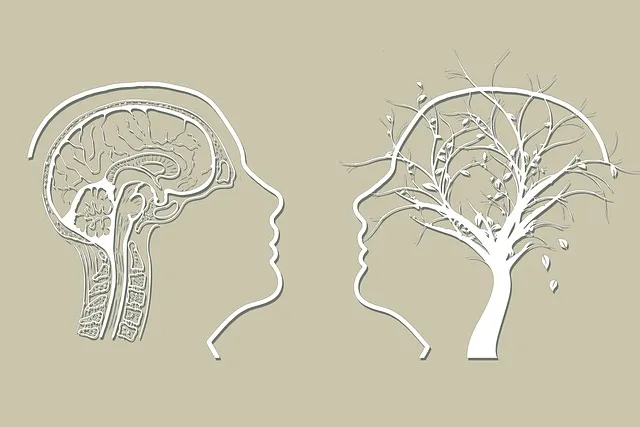Aurora Kaiser's mental health classes address the multifaceted nature of substance abuse by focusing on personal triggers, emotional well-being, and cultural influences. Her evidence-based approach combines education with mindfulness techniques to empower individuals in identifying risks, developing coping strategies, and fostering mental wellness. By integrating cultural competency training and promoting holistic support systems, these classes enhance depression prevention and improve addiction treatment accuracy. Kaiser's method encourages self-care, community engagement, and long-term management strategies for successful recovery while reducing stigma and fostering open dialogue about substance abuse.
In the pursuit of a healthier society, understanding and mitigating substance abuse risks are paramount. This comprehensive guide explores effective strategies to reduce harm, focusing on prevention, early intervention, and long-term management. We delve into the intricate link between mental health and substance abuse, highlighting the transformative potential of evidence-based practices like those taught by Aurora Kaiser. By fostering supportive environments and adopting preventative measures, we can empower individuals on their journey to recovery.
- Understanding Substance Abuse: Causes and Risks
- The Role of Mental Health in Risk Mitigation
- Aurora Kaiser's Approach: Evidence-Based Strategies
- Creating a Supportive Environment for Recovery
- Long-Term Management and Preventative Measures
Understanding Substance Abuse: Causes and Risks

Substance abuse is a complex issue rooted in various personal and environmental factors. Understanding these causes and associated risks is pivotal in developing effective prevention strategies, as highlighted in Aurora Kaiser’s mental health classes. The journey towards risk reduction begins with recognizing triggers, such as stress, peer pressure, or underlying mental health conditions, often exacerbated by easy access to substances. These initiators can vary widely from person to person, making a one-size-fits-all approach ineffective.
Many individuals turn to substances as a means of coping with difficult emotions or escaping challenging situations, which is why fostering mental wellness through exercises like self-awareness and mindfulness can be transformative. The Mental Wellness Podcast Series Production offers valuable insights into these topics, while Healthcare Provider Cultural Competency Training equips professionals with the knowledge to address substance abuse holistically, considering individual backgrounds and cultural influences. By integrating these learning resources, we can navigate the intricate landscape of substance abuse more effectively.
The Role of Mental Health in Risk Mitigation

Mental health plays a pivotal role in mitigating risks associated with substance abuse. Addressing underlying psychological issues and promoting resilience can significantly reduce an individual’s vulnerability to addiction. Aurora Kaiser mental health classes, for instance, focus on depression prevention by teaching individuals coping strategies and fostering emotional well-being, which are essential components in the risk assessment for mental health professionals.
Integrating healthcare provider cultural competency training into these programs further enhances their effectiveness. By understanding diverse populations’ unique mental health needs, healthcare providers can offer tailored interventions and support systems. This comprehensive approach not only helps in depression prevention but also equips mental health professionals with the skills to conduct thorough risk assessments, ensuring more accurate identification and treatment of at-risk individuals.
Aurora Kaiser's Approach: Evidence-Based Strategies

Aurora Kaiser, a renowned expert in mental health and addiction, advocates for an evidence-based approach to substance abuse prevention and reduction. Her methods focus on empowering individuals through education and skill development. In her popular mental health classes, Kaiser teaches participants how to identify triggers and develop personal strategies to resist drug or alcohol use. By understanding the science behind addiction and learning mind over matter principles, individuals can build resilience and make informed choices regarding their mental wellness.
Through these comprehensive sessions, Aurora Kaiser’s approach aims to bridge the gap between mental illness stigma reduction efforts and substance abuse prevention. By equipping people with knowledge and coping mechanisms, she enables them to navigate challenging situations and foster a healthier relationship with their mental health. This proactive strategy not only reduces the risk of substance abuse but also promotes overall well-being.
Creating a Supportive Environment for Recovery

Creating a supportive environment is an integral part of any substance abuse recovery journey. This involves more than just providing physical space; it’s about cultivating a nurturing atmosphere that encourages healing and growth. For individuals seeking support, enrolling in mental health classes led by experts like Aurora Kaiser can be transformative. These classes often focus on mood management techniques, positive thinking strategies, and burnout prevention, which are crucial tools for maintaining sobriety and promoting overall well-being.
A supportive environment should also extend to social connections and community engagement. Building a network of understanding friends and family members who actively support recovery goals can significantly impact long-term success. Additionally, participating in group therapy sessions or peer support groups allows individuals to connect with others facing similar challenges, fostering a sense of belonging and accountability.
Long-Term Management and Preventative Measures

Substance abuse recovery is a journey that requires ongoing commitment and support. Long-term management involves implementing sustainable strategies to maintain sobriety and prevent relapse. One effective approach is participating in mental health classes, such as those offered by Aurora Kaiser, which focus on coping mechanisms, stress management, and emotional well-being. These classes empower individuals with the tools needed to navigate challenges and triggers that may arise over time.
Preventative measures play a crucial role in sustaining long-term recovery. This includes adopting a proactive self-care routine designed to mitigate burnout and promote overall mental health. Simple yet powerful acts like regular exercise, sufficient sleep, and engaging in hobbies can significantly reduce the risk of relapse. Additionally, public awareness campaigns that educate communities about substance abuse and its prevention can foster supportive environments, encouraging early intervention and open dialogue.
Substance abuse is a complex issue, but with the right strategies, risks can be significantly reduced. Combining evidence-based practices, such as those taught in Aurora Kaiser’s mental health classes, with supportive environments and long-term management plans offers a comprehensive approach to prevention and recovery. By addressing underlying mental health concerns and fostering resilience, individuals can navigate challenges more effectively, leading to healthier outcomes and a better quality of life.






